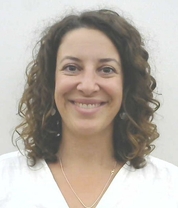
Dr Angela Fontaine-Titley
After graduating with distinction from the Paris Lodron University Salzburg in Austria with a MSc in Genetics, Dr. Angela Fontaine-Titley moved to Munich to embark on a PhD at the Walter Brendel Centre at the Ludwig Maximilians University of Munich. During her PhD she focused on a rare human primary immunodeficiency and unravelled a novel role for MST1 in neutrophils, explaining the severity of the primary immunodeficiency affecting both the adaptive and innate immune system, using intravital imaging techniques.
During her PhD, Angela was able to join an exchange program between Europe and Brazil. She joined the laboratory of Hugo C. Castro-Faria-Neto at Fundação Oswaldo Cruz in Rio De Janeiro to expand her skills in modelling acute and chronic inflammatory diseases in vivo.
Angela was awarded the ESM-Servier Award in Microcirculation in 2017 for discovering “MST1-dependent vesicle trafficking regulates neutrophil transmigration through the vascular basement membrane” published in JCI in 2016.
To further her skill in intravital microscopy, Angela moved to Sydney in 2017. She received a DFG Research Fellowship to investigate immune evasion by Group A Streptococcus in the Laboratory of Prof. Wolfgang Weninger at the Centenary Institute.
At Garvan, Angela joined the ACRF-funded Intravital Imaging of Niches for Cancer Immune Therapy (INCITe) Centre to apply intravital imaging techniques to revolutionise the treatment of all cancers.
Selected publications
See all publications- 2025Science Advances10.1126/sciadv.ady5599
Inclusion of JNK-independent drugs within multiagent chemotherapy improves response in relapsed high-risk neuroblastoma.
- 2025Cell Reports10.1016/j.celrep.2025.115691
ER stress disrupts insulin release in murine models of type 2 diabetes by impairing retromer action and constitutive secretion.
